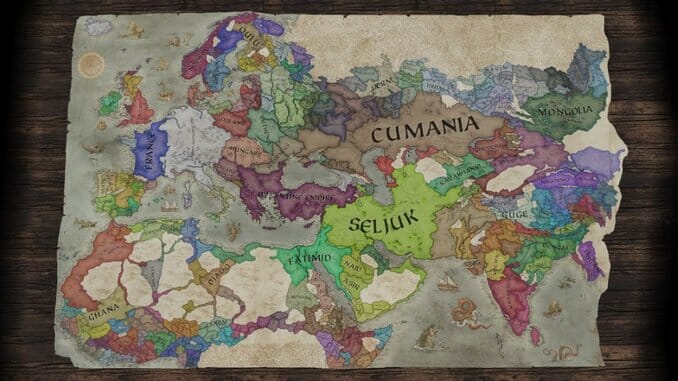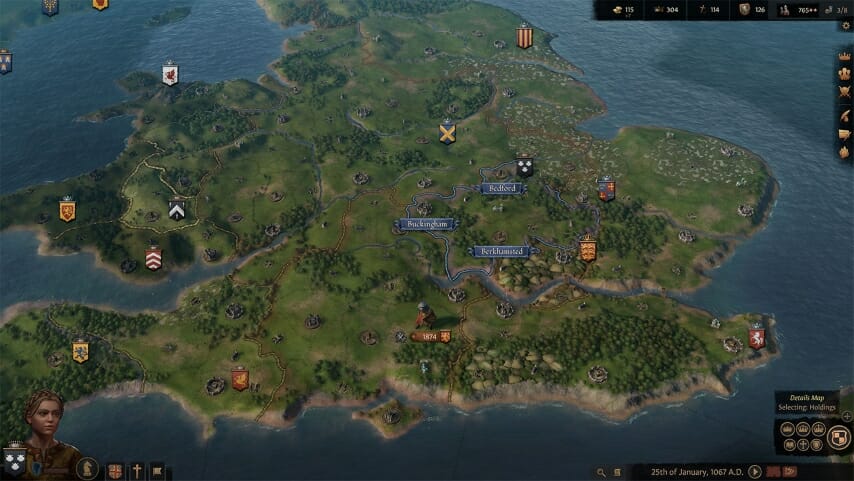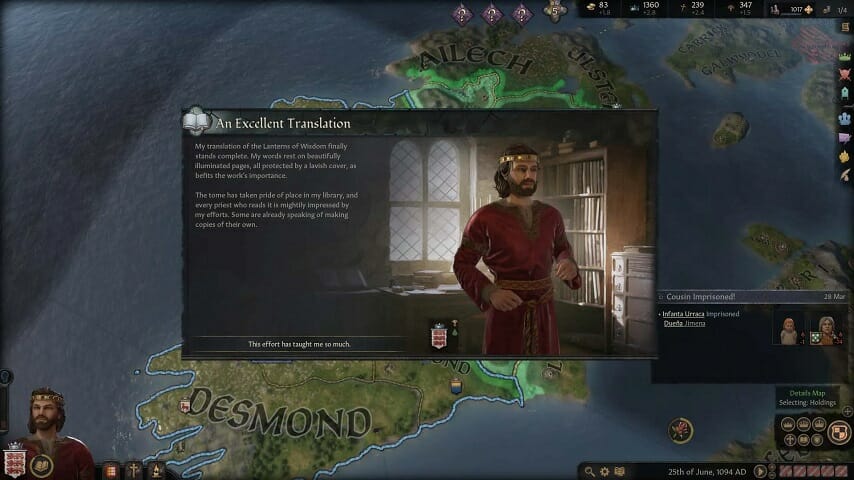
With Ireland comfortably in my grasp, I set my sights on conquering Scotland. The country had been severely weakened by both a civil war and skirmishes with invading Nords. Splitting my forces into several armies, I set out to quickly claim some cities and end the invasion I had just launched. With five Scottish counties newly under my control, I saw the king of Scotland crest a hill towards my weakest army. I converged my forces on him and managed to subdue him, giving me enough leeway in the war to enforce my demands. Scotland became mine, and for the first time while playing Crusader Kings III I felt like I was actually winning. Then my king, Ivar the Boneless, died, and his fledgling empire was shattered.
Building an empire over a lifetime only to lose it all in an instant is an experience I’ve come to love and hate in Crusader Kings III. While other grand strategy games put you in the role of an immortal and omniscient leader, Crusader Kings III places the player in the decaying body of a noble who may or may not know how to read. Through a dynasty of leaders that the player controls, you are tasked with creating, conquering, and maintaining control of your territory of Afro-Eurasia. Half the game saw me carefully cultivating my realm in anticipation of the next conquest while the other focused on making sure my son could fill my shoes once I was gone. But making sure your heir is half the leader you were—or even gets half of what you led—is no easy task.

There’s no checkbox that ensures your heir can take over your entire realm. They can only take over one of your highest titles at a time. Individual counties are the smallest titles of a realm. With enough counties in the same location, you can form a duchy. Enough duchies in the same area and you’ve got yourself a kingdom. Enough kingdoms? That earns you an empire. If your last leader died as a king of two realms but failed to found an empire, then the player’s heir can only inherit one kingdom title. Each rung of the nation building ladder takes both time and money, two resources that the game gives out sparingly.
It’s this lack of given resources that drives the real meat of Crusader Kings III: politicking. Marrying into families, plotting assassinations and fabricating claims on counties are just a few of the tools at your fingertips. Scheming is just as effective as warfare for getting your demands met, sometimes moreso. Others can scheme and plot against you as well, and every person—from your advisors to the noble you bumped into at a party five years ago—has an opinion of you. These aren’t just empty feelings on their part, either. If people don’t like you chances are they’ll make it known in a way that directly impacts you.

The game is an exercise in realism, with multiple scenarios for the player to choose from, each with their own historically accurate rulers and realms. In each scenario you can pick any ruler to play as, from the lowliest of counts to the mightiest of emperors. No matter who you play as, there’s no special treatment given to the player. If you play as a French noble then you are bound to French culture, with the decisions you are allowed to make directly influenced by your heritage. If you want to raise an army, you better be prepared to wait the month it will take your peasants to rally. All of these systems create a game that limits the player’s ability to actually play the game, but in a way that fits the theme of a realistic medieval simulation. It’s unlikely that a random Count in Ireland could cobble together the entire Empire of Brittania in their lifetime. But maybe if three generations played their hand just right, the dynasty could pull it off.
I couldn’t build an empire in old Boneless’s lifetime, and subsequent heirs found themselves in possession of less and less counties as the dynasty wore on. But it was a dynasty I was willing to see to its bitter end. Four generations in, I felt it was time to retire and did so with a smile on my face. Crusader Kings III forces you to play as a human capable of only human feats, and constantly reminds you of that fact. But it is this limitation that gives every action you take a real sense of weight, and makes even the most mundane of decisions feel like life and death.
Crusader Kings III was developed and published by Paradox Interactive. It is available for the PC.
Nicolas Perez is an editorial intern at Paste and opinion co-editor for New University. He’s rambling on Twitter @Nic_Perez_.